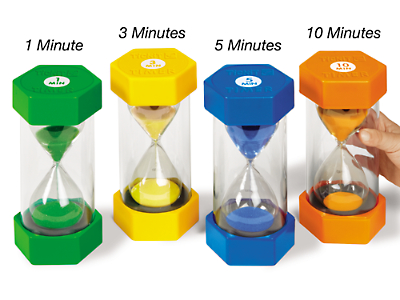
As parents, it can be really frustrating to invest so much into your child’s speech therapy (time, money, emotion) only to hear “It’s boring” or “I don’t want to”. More frustrating is the little improvement you will see when this happens.
Here are a few tips for maximising motivation to get the most out of therapy!
Young children in particular may not understand ‘why’ they need speech therapy or perhaps even the goals they are working on. These children often need a lot of extrinsic motivation – cue rewards!
We’ve all used a bit of bribery with our kids at one stage or another, but it’s all about doing it the right way.
‘Token rewards’ are great for the hard-to-motivate child, or any child really.
They work much the same way as a ‘star chart’. Tokens may be stamps, stickers, game chips, cubes, marbles or any item that you can access – as long as it is visual and tangible. With a token reward system, the child can see exactly what they have achieved (i.e. how many tokens they have collected) and how much more they need to get a reward.
In the clinic room, my kids choose their favourite activity, toy or game from a visual folder and then they get to see the ‘reward’ they are working towards on a Visual Token Board. I usually use a 4-Token Board with Velcro attachments, but for younger children or children with attention difficulties they may only need 2 tokens or a ‘First’ – ‘Then’ Visual Sequence (e.g. first ‘work’ then ‘toy’). They do my set activities, earn their tokens, then they get to play their chosen game.
Small Talk Token Boards will be coming soon to our online shop, or you can purchase them during your next visit to our clinic.

You don’t have to use a token board, however, many of my families use stamp or tick charts and these can be great for building motivation and setting goals for practice at home. I try and encourage families to think of low cost activities to use as rewards. Don’t get stuck in the trap of “I’ll buy you this if you do your homework”. Perhaps you could work towards a fun activity like going to the park or an extra 10 minutes of play on the iPad.


I love getting creative with therapy. It makes such a difference if you can incorporate your child’s interests into your activities. Then it doesn’t feel like therapy at all!
Whether it is:
Talk to your therapist about ways of incorporating your child’s interest into their therapy plan. Yes, there is always ‘work’ to be done but therapy can and should be fun!
You can read more about using your child’s interests to learn about emotions here.

If getting your child to sit at a table for anything more than 10 minutes at home is a challenge then a timer might be the right fit for you!
We use timers a lot with children diagnosed with Autism Spectrum Disorder (ASD) and Attention Deficit Hyperactivity Disorder (ADHD) but they can be an effective strategy for any child in speech therapy.
Timers can be great for children who have trouble staying on task and completing non-preferred activities. I always say to families to start small. If you are really struggling to get anything done at home, set small time goals and allow your child to word towards a motivating reward break.
There are lots of different timers you can use: red clock visual timers, sand timers, digital
timers on your phone or watch and there are LOTS of fun timer Apps as well. Talk to your therapist about what is appropriate for your child to use at home and get timing!
Apps on iTunes for you to check out:

When it’s appropriate, it can be very beneficial to explain to your children “why” they have speech therapy. I try and use simple language and keep it age appropriate.
In my experience, communication difficulties are really frustrating for kids and if you can explain to them how going to therapy and doing work at home is going to help reduce their frustration, then they are likely to be more onboard.
For older children, it might be helpful to talk about their goals and what they need to do to achieve them. For example, Mr T is working on the ‘L’ sound at the moment and we are targeting the sound at the single word level. We use a visual tick board that shows all the steps that we have to achieve for us to be able to say the ‘L’ sound when talking to friends. Mr T is very motivated to work on this sound as he loves “Lightning McQueen” and his best friend is “Luke”. Once Mr T can say the ‘L’ sound in his target words by himself, he knows that the next step is saying his ‘L’ in “little sentences”, then “longer sentences”, “stories” and finally “when talking to friends”. Mr T is showing great intrinsic motivation and is happy to work through the steps in order to reach his final goal.
You have probably noticed that at the start of every session your therapist says something along the lines of “how has everything been going at home?”.
If it hasn’t been going well then let us know. Don’t be embarrassed. It’s our job to help you and problem solve ways to make your child happy to come to therapy and then to do the work at home (even if it means disguising the work as ‘play’).
Collaboration between therapists and families is so important to achieving motivation and success in therapy!